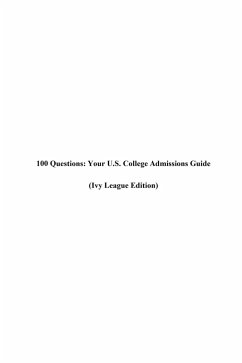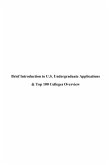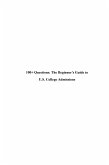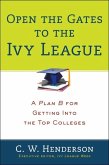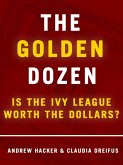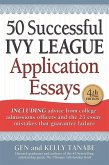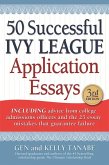This perception of unpredictability stems largely from three cognitive biases:
First, rigid mindsets and test-score determinism. Many cling to the belief that "scores dictate everything," failing to grasp U.S. universities' holistic evaluation standards. To admissions officers, grades are but one factor among many.
Second, information asymmetry. Most families possess limited understanding of admissions preferences, policies, and decision-making processes. They see only surface-level outcomes, not the underlying institutional logic.
Third, misinterpretations of U.S. higher education philosophy. Top American universities seek not merely "the best" students, but aim to cultivate a diverse, balanced, and dynamic academic community.
To demystify this "enigma" and help applicants unlock doors to the Ivy League and elite institutions, we authored 100 Questions About U.S. Undergraduate Application. Drawing on in-depth analysis of the above biases, this Q&A guide tackles critical topicsacademic planning, extracurricular design, essay writing, school selection, and application documentationproviding clarity for high school students pursuing U.S. undergraduate studies, whether through DIY or semi-DIY approaches.
Dieser Download kann aus rechtlichen Gründen nur mit Rechnungsadresse in A, B, CY, CZ, D, DK, EW, E, FIN, F, GR, H, IRL, I, LT, L, LR, M, NL, PL, P, R, S, SLO, SK ausgeliefert werden.

